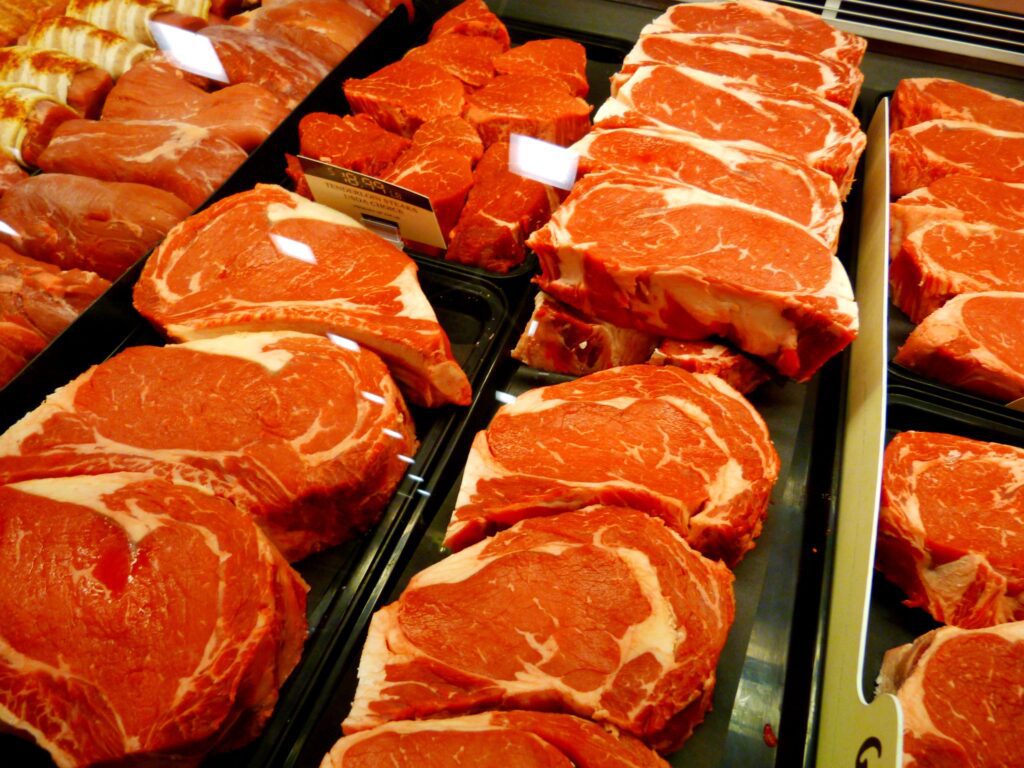


How can we justify slaughtering cows to repair our hearts, when the consumption of cows is what weakens our hearts?
By Maureen Medina, Independent Media Institute
6 min read
The demand for bovine heart valves to treat cardiovascular disease—the top global killer—is rising, and there is a cruel irony—with which I have firsthand experience—in how the cattle industry has become both the problem and the solution. We rely on medical treatments procured from cows to treat cardiovascular disease in humans, which is largely caused by our consumption of cows and other animals (red meat).
Brilliant marketing campaigns by the cattle industry have shielded us from the ugly truth all along: the cattle industry is only interested in making profits at the cost of our health and well-being and the lives of other animals.
The cattle industry profits from government-funded exploitation of cows under the guise of nutrition and medicine. Corporate giants in the food industry, such as Cargill and Tyson Foods, and medical technology giants, such as Edwards Lifesciences, all profit from the cattle they slaughter for their meat, dairy and tissue.
The government subsidies that the cattle industry receives prove to be dangerous for our health while profiting the corporate subsidy recipients. “‘[C]urrent federal agricultural subsidies focus on financing production of food commodities, a large portion of which are converted into high-fat meat and dairy products’ and other items that increase the risk for cardiometabolic risks in American adults,” stated the Physicians Committee for Responsible Medicine, while quoting from a study by the Centers for Disease Control and Prevention and Emory University.
Yet “the U.S. government spends $38 billion each year to subsidize the meat and dairy industries, but only… $17 million… each year to subsidize fruits and vegetables,” according to a 2015 University of California, Berkeley paper.
It’s a vicious cycle that harms people and animals, and benefits profit-driven corporations. On one side, big agribusiness is slaughtering cows for meat and dairy—foods that researchers have linked to an increased risk of cardiovascular disease. On the other side, medical corporations are profiting from producing bovine heart valves.
Cargill, which is one of the largest beef processors in North America and earned $134.4 billion in 2021, has been dubbed “the worst company in the world” by environmental organization Mighty Earth for its unethical and unsustainable business practices and the environmental damage it has caused. In addition to perpetuating antibiotic resistance, Cargill has repeatedly been the source of multiple outbreaks of foodborne illnesses, such as listeria, salmonella and E. coli, over the years, and is responsible for distributing millions of pounds of contaminated poultry and beef.
Tyson Foods is the world’s second-largest meat processor and one of four companies that control more than 80 percent of beef processing in the United States. In 2020, it earned about $43.2 billion, which is mostly attributed to its sale of beef. In 2015, Tyson Foods recalled approximately 16,000 pounds of ground beef products that may have been contaminated with E. coli and had to recall 8,955,296 pounds of chicken products due to potential contamination of listeria in 2021.
Edwards Lifesciences, with reported revenue of $4.4 billion in 2020, receives pig hearts and cow tissue daily and has federal approval to sell cow-based valves in the United States. It typically takes the pericardium from three cows to create one heart valve. The company has imported more than 100,000 batches of bovine tissue from Australia since 2020. Edwards Lifesciences predicts that “the global surgical structural heart market opportunity will reach $2 billion by 2028.”
In 2012, I received a 23 mm bovine valve from Edwards Lifesciences to replace my pulmonary valve.
At only 23 years of age, I had my second open-heart surgery. My sternum was cut and spread open, my heart muscle was exposed, my heart was stopped while a machine operated in its place, and my pulmonary valve was replaced with bovine tissue. This was the most extreme experience I have ever endured, yet, according to one estimate, the prevalence of heart valve surgery will increase from 290,000 to 890,000 between 2003 and 2050.
I was given the option of a mechanical heart valve but was told that, if I did, I would require anticoagulants for the rest of my life to prevent blood clotting; the other option was getting a biological valve, which was encouraged. Though the risks of clotting in biological valves are downplayed, especially in comparison to the risks associated with mechanical valves, my cardiologists from New York-Presbyterian/Cornell Medical Center have urged me—and others who have undergone similar procedures—to take blood thinners daily for the rest of our lives. With biological valves, which are associated with easy intraoperative handling and minimal suture line bleeding, there is a risk of degradation after 15-20 years due to calcification or inflammation; the course of action if that happens is to replace the valve once it expires.
I put my fate entirely in the doctors’ hands—as most people do—and, desperate to alleviate my symptoms rather than add to them, I chose to get a biological valve made from bovine tissue.
It took almost a year to be operated on, yet no preventative measures were taken or recommended to alleviate my pain. I begged for surgery because I thought it was the only way. But was it?
While many conditions (like mine) are congenital, we can still argue about nature versus nurture.
Research presented by the European Society of Cardiology found that eating greater amounts of red and processed meat is associated with an increased risk of heart disease and death. According to a study conducted by the University of Oxford’s Nuffield Department of Population Health, which involved more than 1.4 million people whose health was tracked for 30 years, for every 1.76 ounces of unprocessed red meat consumed per day, the risk of coronary heart disease increased by 9 percent. Heart disease claims approximately 17.9 million lives worldwide annually.
On condition of anonymity, one nurse shared with me, “Healthy people don’t make money.”
“More than 70 percent of chronic illnesses [including heart failure] can be prevented or reversed with a whole-food, plant-based dietary lifestyle,” according to the Plantrician Project. Yet, “the market for replacement heart valves is growing at a rate of about 13 percent every year globally and demand outstrips supply,” according to Stuff, a New Zealand-based news website.
There are about 10.4 million beef and dairy cattle in New Zealand, and the United States constitutes the biggest market for the pericardia extracted from these animals. One source reportedly refused to divulge to Stuff the number of cow pericardia extracted and sold per year, citing “commercial reasons.”
According to new research on the bovine pericardial market, “the market is expected to reach… $4,134.4 million by 2027 from… $1,959.7 million in 2019; it is estimated to grow at a… [compound annual growth rate (CAGR)] of 9.9 percent from 2020 to 2027.”
“[One] hurdle we cannot ignore is that there is no profit in health, while there are immense profits derived from disease; hence, the U.S. has created a ‘disease and disability’ care system, rather than a true ‘health’ care system built on the foundational pillar of prevention,” pointed out the Plantrician Project.
How can we justify slaughtering cows to repair our hearts, when the consumption of cows is what weakens our hearts? While discerning between farming corporations and medical corporations within the cattle industry, one must ask: Is there a difference?
For the good of human health, as well as the health of the planet and its nonhuman inhabitants (especially cows), it is important for each person to listen to their own body, and that they (in tandem with physicians) stay informed and explore preventative measures.
###
Maureen Medina is the founder of Leave in Peace and a campaign strategist and organizer for Slaughter Free NYC. In alignment with the idea that none of us are free unless all of us are free, Maureen hopes to inspire the pursuit of collective liberation through her writing. Find Maureen’s work on Linktree.
Take action…
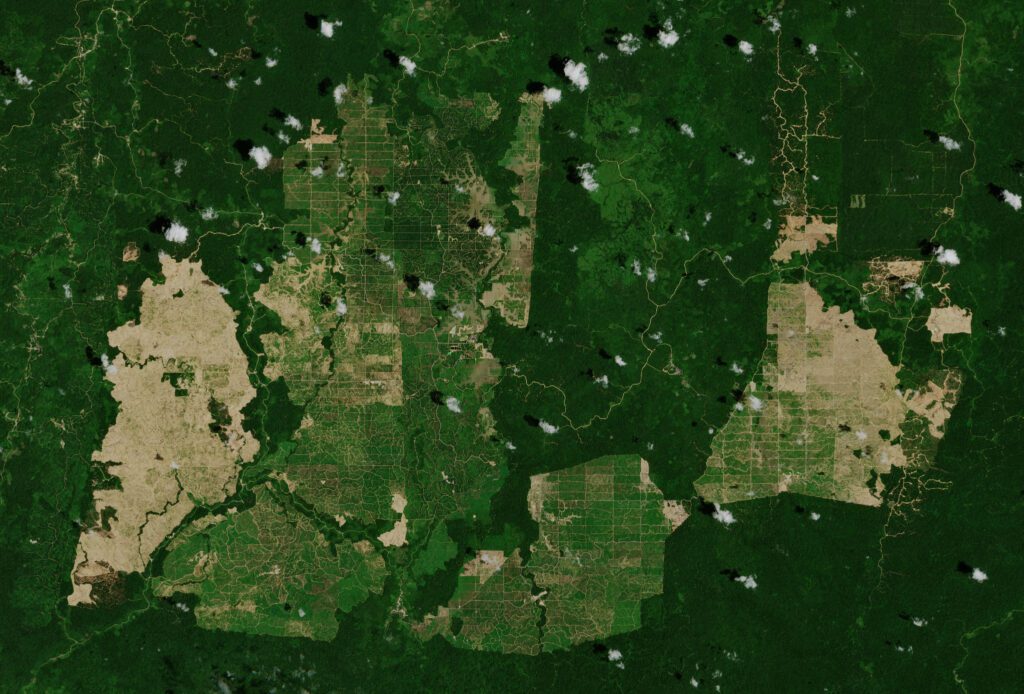
The worst company in the world: Cargill
“Numerous corporations are guilty of trashing nature. Major chocolate manufacturers, countless palm oil producers and global fast-food chains are all driving the decline of the world’s forests, savannas and other ecosystems. Yet when it comes to environmental destruction, Cargill dwarfs all the rest: If other corporations are piranhas, Cargill is a great white shark,” says Rainforest Rescue, a nonprofit environmental group based in Hamburg, Germany. “The U.S.-based multinational has a long and sordid history of duplicity, deception and destruction that earned it the title “worst company in the world” in a report by the NGO Mighty Earth. The report describes in detail how Cargill profits from the destruction of the environment and the exploitation of people and how it blocks urgently needed changes.
“In Brazil, Argentina, Paraguay and Bolivia, Cargill is involved in the wholesale destruction of the Amazon, Grand Chaco and Cerrado ecosystems for the production of soy and beef,” the group states. “In Côte d’Ivoire and Ghana, Cargill buys cocoa that has been illegally grown in protected areas and national parks. The company also does not seem to have a problem with buying cocoa that was produced using child labor. In Indonesia and Malaysia, Cargill buys palm oil from companies that illegally clear rainforests and are involved in child and forced labor. Cargill ignores those issues: profits come before ethics.”
Tell McDonald’s, Burger King, Walmart and Unilever to drop Cargill from their supply chains.
Cause for concern…
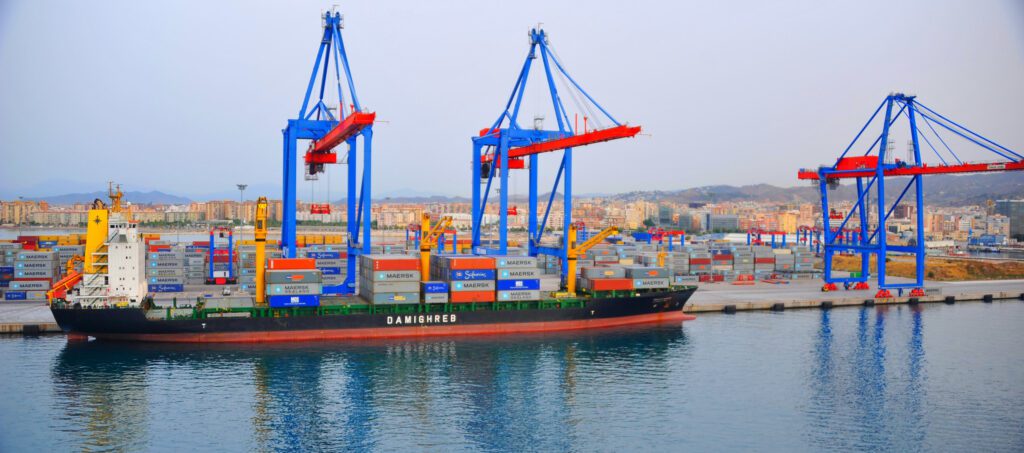
Ship pollution is rising as the U.S. waits for world leaders to act
“As sales of electric cars increase and renewable energy proliferates, only a few shippers have begun to try zero-emission fuels and wind-propulsion technology,” reports Anna Phillips for the Washington Post. “Efforts to cut carbon emissions through international regulations have met resistance from shipbuilders, oil companies and countries aligned with the handful of major shippers dominating the industry.”
“On [June 6], the International Maritime Organization, the UN agency that regulates international shipping, brought together officials from more than 100 countries for a virtual meeting to discuss whether to raise their collective climate ambition. But the shipping and fossil fuel industries wield considerable influence in these negotiations: Financing for the IMO’s green ships initiative, for example, comes from Saudi Arabia, the world’s largest oil exporter.”
Round of applause…
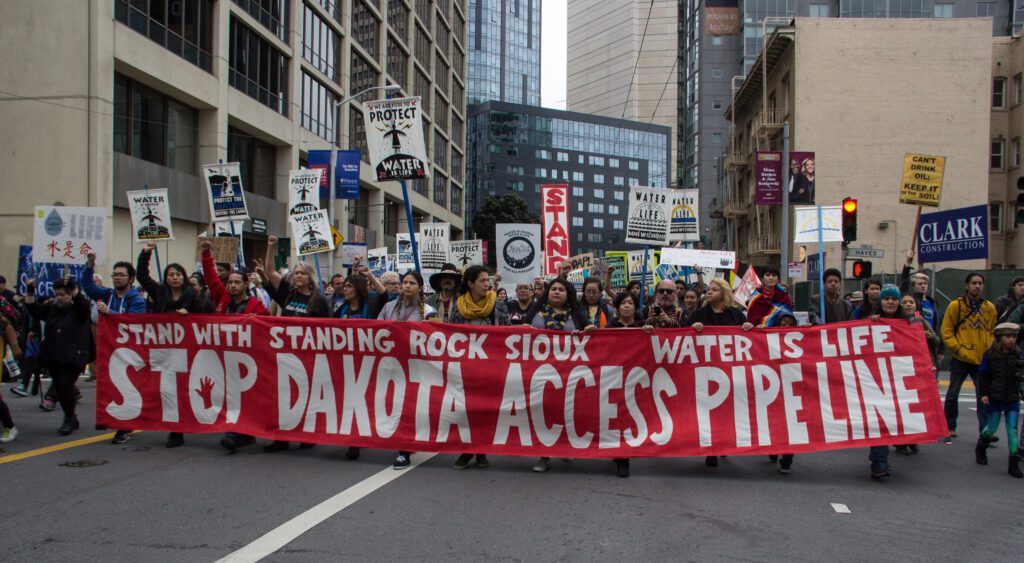
Reversing Trump, EPA will restore Tribes’ and states’ power to oppose pipelines
On June 2, the Environmental Protection Agency (EPA) proposed a rule restoring power to Tribes and states seeking to oppose pipeline projects on the grounds that such projects threaten waterways and wetlands, reversing a contentious Trump-era policy that imposed strict deadlines and limited reviews.
“For 50 years, the Clean Water Act has protected water resources that are essential to thriving communities, vibrant ecosystems, and sustainable economic growth,” said EPA Administrator Michael S. Regan. “EPA’s proposed rule builds on this foundation by empowering states, territories, and Tribes to use Congressionally granted authority to protect precious water resources while supporting much-needed infrastructure projects that create jobs and bolster our economy.”
Sen. Tom Carper (D-Del.), chairman of the Senate Committee on Environment and Public Works, said, “The Clean Water Act quite clearly gives states, territories, and Tribes the ability to protect their water quality when projects are permitted or licensed.”
Letter to the editor…
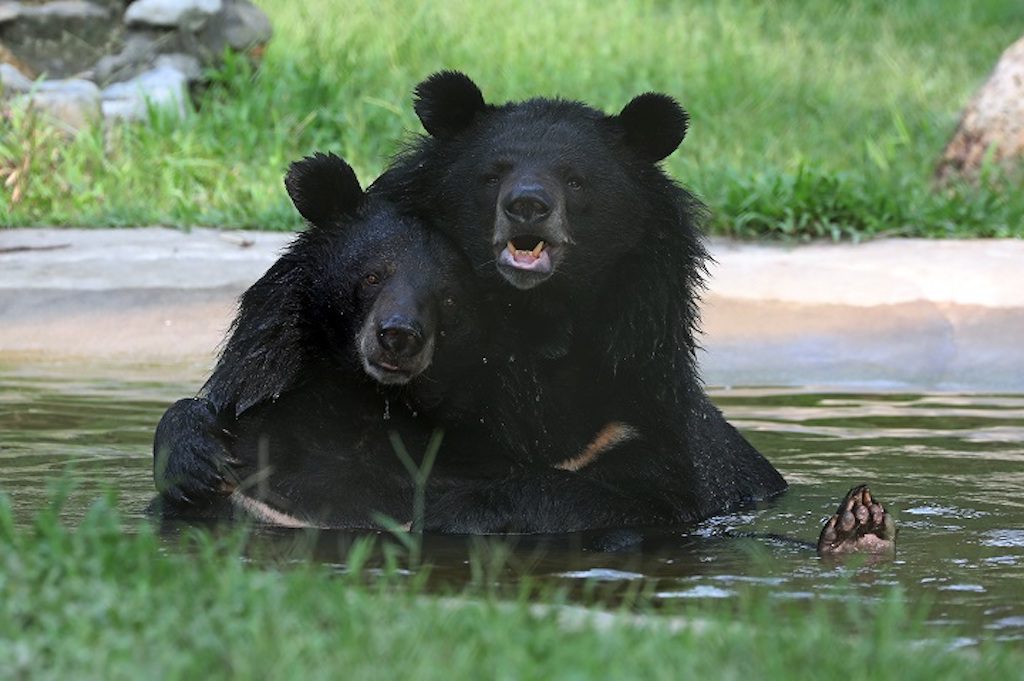
The end of bear bile farming in Vietnam
Dear Earth | Food | Life,
I am writing to you about great news in the animal welfare and biodiversity area: Animals Asia is ending bear bile farming in Vietnam. We are presenting the last bear sanctuary in the country to save the last remaining 310 bears from farms.
After we signed a Memorandum of Understanding with the Vietnamese Government in 1997, bear bile farming was declared illegal in the country; and since then, we have been rescuing the remaining bears on bile farms. But our current bear rescue center in Tam Dao is now approaching its full capacity; therefore, we are about to break ground for a new sanctuary in Bach Ma.
This 12-hectare sanctuary will be home to all rescued bears. Once the last bear is saved, this cruelty will be history for Vietnam and set a precedent for other countries in the region to follow. This is a monumental step in biodiversity since this cruel practice has been pushing moon and sun bears towards extinction in the country and is listed as “vulnerable to extinction” by International Union for Conservation of Nature.
Best,
Nezahat E. Sevim
Global Head of Media Relations and PR
Animals Asia
May 24, 2022
Parting thought…
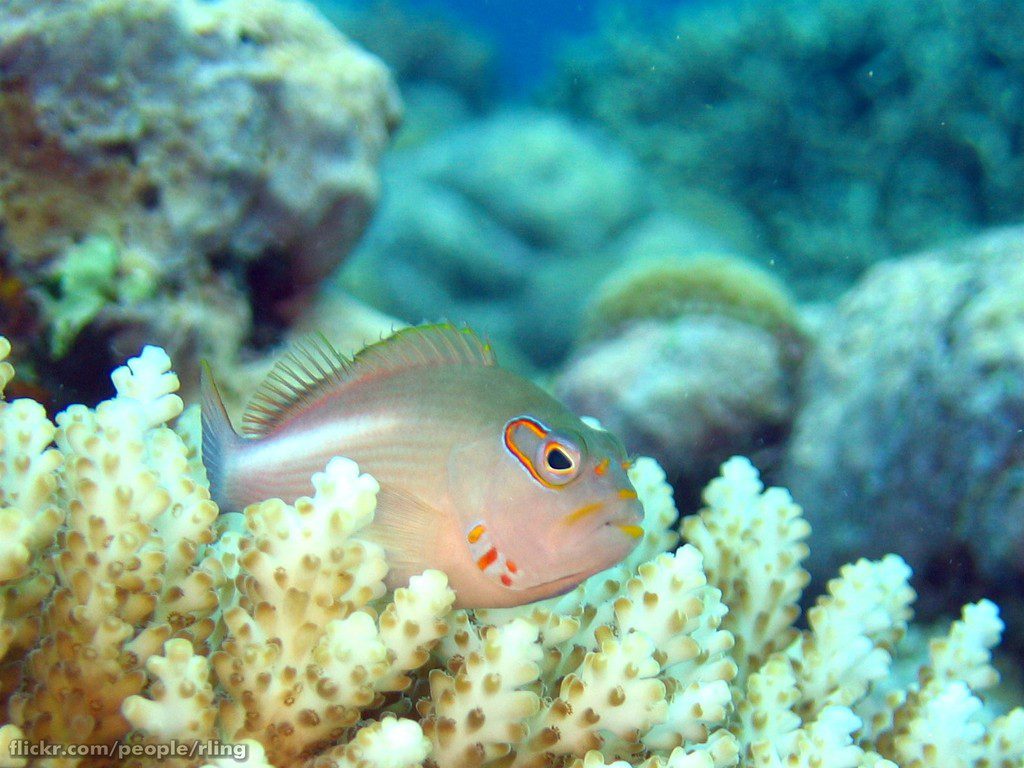
“Fish don’t have a three-second memory … in fact, they can be taught how to evade a trap and remember it a year later. Fish can learn from each other, recognize other fish they’ve spent time with previously, know their place within fish social hierarchies, and remember complex spatial maps of their surroundings. There’s even some evidence … that they use tools.” —Joseph Stromberg, “Are fish far more intelligent than we realize?” (Vox)
Earth | Food | Life (EFL) explores the critical and often interconnected issues facing the climate/environment, food/agriculture and nature/animal rights, and champions action; specifically, how responsible citizens, voters and consumers can help put society on an ethical path of sustainability that respects the rights of all species who call this planet home. EFL emphasizes the idea that everything is connected, so every decision matters.
Click here to support the work of EFL and the Independent Media Institute.
Questions, comments, suggestions, submissions? Contact EFL editor Reynard Loki at [email protected]. Follow EFL on Twitter @EarthFoodLife.